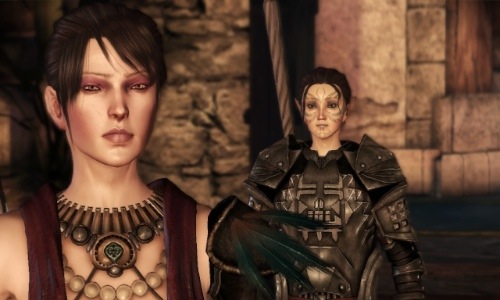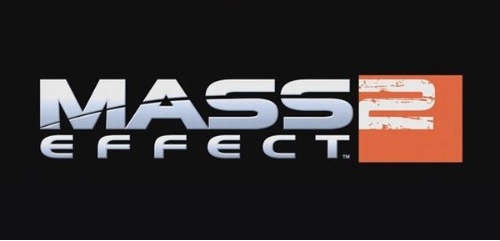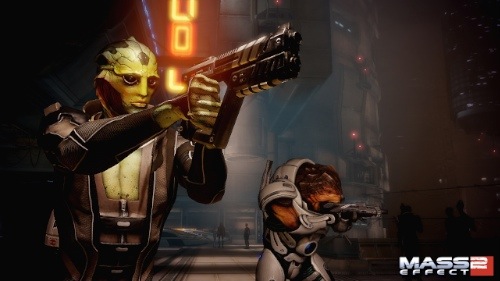I have previously confessed to having an unusually strong attachment to fictional characters that is both troublesome yet wonderful, depending on the situation.
Despite my overly sympathetic nature, few games manage to go beyond this superficial attachment and produce genuine affinity for the character.
 Dragon Age, with its supremely personalized nature and ability to role play to a surprising-yet-still-limited degree, is one example. This helps explain my roller coaster of emotions toward the end of the game: I actually cared about the character I was guiding there.
Dragon Age, with its supremely personalized nature and ability to role play to a surprising-yet-still-limited degree, is one example. This helps explain my roller coaster of emotions toward the end of the game: I actually cared about the character I was guiding there.
It may not come as much of a surprise, then, to hear that the other example that springs readily to mind is another Bioware game: Mass Effect.
 Let me first say that, though Bioware games have managed to unearth a subtle yet complex formula that has so far managed to astound and captivate me with its personalization and the amount of emotion it is able to invoke in me, its job gets harder with every game of theirs I play. This is not only because they are raising the bar so much with every title, but also because the more I experience of their wonderful formula, the more aware of it I become. I fear that one too many Bioware games and the underlying mechanics will become too clear to me and the illusion will be ruined. I do not really wish to see behind the curtain in this case, and I can only hope they continue to innovate and keep me guessing.
Let me first say that, though Bioware games have managed to unearth a subtle yet complex formula that has so far managed to astound and captivate me with its personalization and the amount of emotion it is able to invoke in me, its job gets harder with every game of theirs I play. This is not only because they are raising the bar so much with every title, but also because the more I experience of their wonderful formula, the more aware of it I become. I fear that one too many Bioware games and the underlying mechanics will become too clear to me and the illusion will be ruined. I do not really wish to see behind the curtain in this case, and I can only hope they continue to innovate and keep me guessing.
The first Mass Effect was a perfectly enjoyable game and one that managed to nail a satisfying, epic conclusion with more certainty than Dragon Age, though with more predictability as well. It wasn’t until Mass Effect 2, however, that my Commander Shepard became one of the few beloved fictional characters that I have true affection for.
 It took the second game’s reinforcement of the character that I had created, the decisions I had made in the past, and the history I had woven for myself to make me realize just how much I had been able to make my own experience out of the Mass Effect universe. Never before have I felt that a game’s story was as customized to my own whims as the second game’s is looking to be. Much of this may rightly be called an illusion, but even if this is true I don’t wish to know. If ignorance is bliss here, I choose bliss.
It took the second game’s reinforcement of the character that I had created, the decisions I had made in the past, and the history I had woven for myself to make me realize just how much I had been able to make my own experience out of the Mass Effect universe. Never before have I felt that a game’s story was as customized to my own whims as the second game’s is looking to be. Much of this may rightly be called an illusion, but even if this is true I don’t wish to know. If ignorance is bliss here, I choose bliss.
It wasn’t simply the repetition of my previous actions that created the affinity, however, I am not entranced by a mere list. What did the trick was subtly reminding me of the history I had with this character and upping the stakes. By combining a reintroduction with a gripping beginning to a new tale that takes MY Commander Shepard and places her into greater dangers that threaten not only her life, but who she is, Bioware have crafted an experience that is both as adrenaline-fueled as an action movie and as personal as a drama. It is something truly special.
 Perhaps I am slightly overstating their accomplishments out of excitement, but I believe that what I say is true at least within the realm of interactive storytelling. Greater things have surely been done with fiction in other mediums, but I feel strongly that this is an important moment for telling stories within the confines of a game. The medium has finally discovered the ability to not only create characters appealing in a more traditional, non-interactive sense, but also characters who are fascinating precisely because of the direct role the player has in shaping who they are, an experience no other medium can provide.
Perhaps I am slightly overstating their accomplishments out of excitement, but I believe that what I say is true at least within the realm of interactive storytelling. Greater things have surely been done with fiction in other mediums, but I feel strongly that this is an important moment for telling stories within the confines of a game. The medium has finally discovered the ability to not only create characters appealing in a more traditional, non-interactive sense, but also characters who are fascinating precisely because of the direct role the player has in shaping who they are, an experience no other medium can provide.
I hope Bioware can manage to capitalize on this. With an accomplishment of this size comes a pressure to perform that is perhaps even larger. I have faith, however. This is a team that seems to hold captivating tales and solid character development in just as high a regard as solid gameplay. I feel confident they will deliver my Commander Shepard to an ending worthy of the beginning they have so thoroughly nailed.